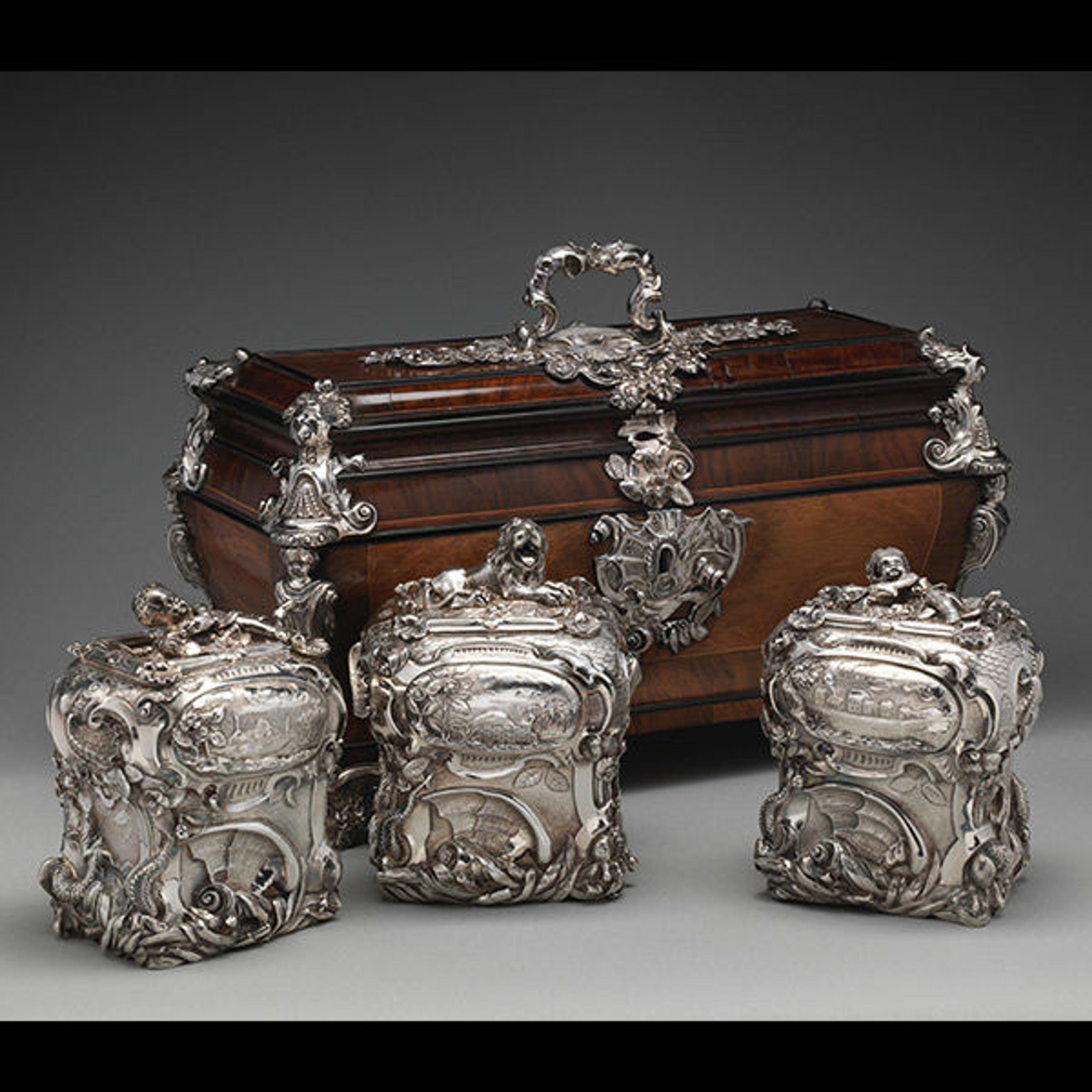Audio Guide

406. Trade and Empire
Gallery 510
NARRATOR: What do tea and sugar have to do with global, colonial expansion?
Think: Palm trees. Mosquitos. Tropical Heat. Not familiar conditions for the average British citizen. Starting in the 1600s–and then for centuries to come–the hunger for wealth and power drove Britain into the ruthless enterprise of empire-building.
In the corner case to the left of this text panel, you’ll find a silver tea caddy. On each side is what appears to be a nostalgic scene set in the Caribbean. At the time, consumers might have delighted in these images of novelties such as palm trees and thatched huts, while barely considering that the tea inside was harvested by enslaved men and women.
There were voices (initially a minority) criticizing slave labor, and some objects here indicate how the retail market found its way into their homes, too. Look for a small medallion, no larger than a quarter. It presents an enslaved man on his knees, pleading with the words: “AM I NOT A MAN AND A BROTHER.” This voice of conscience slowly increased in volume, until societal values began to shift.
NARRATOR: Take John Newton, once the operator of a British slave ship. He described the inhuman conditions in which he transported the captured:
JOHN NEWTON: The slaves lie in two rows, one above the other, on each side of the ship, like books upon a shelf.
NARRATOR: Newton later repented, eventually authoring the hymn, Amazing Grace. These objects, and their complicated stories remain. Consider Olaudah Equiano, who was sold into slavery in West Africa as a child and taken to work the fields in the West Indies of the Caribbean Sea. His seminal book, The Middle Passage, describes the horrific voyage:
OLAUDAH EQUIANO: The closeness of the place, and the heat of the climate, added to the number in the ship, which was so crowded that each had scarcely room to turn himself, almost suffocated us. . . The shrieks of the women, and the groans of the dying, rendered the whole a scene of horror almost inconceivable . . . I now saw myself deprived of all chance of returning to my native country . . . I now wished for the last friend, Death, to relieve me.